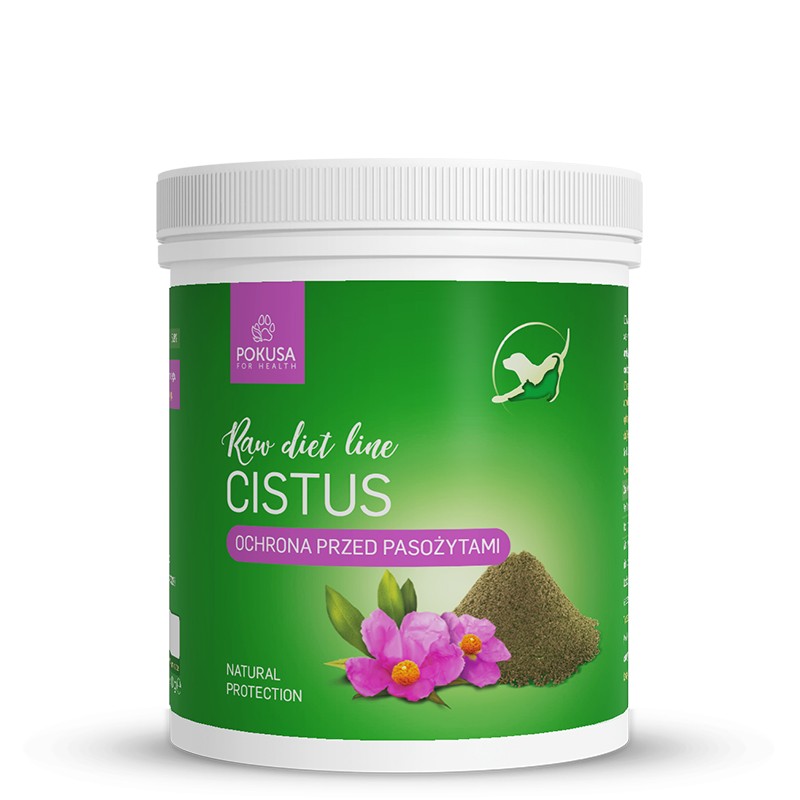


Natural dietary supplement in powder form designed for daily support of dogs' health. Rockrose exhibits strong antioxidant and anti-inflammatory properties, supports immunity and may help the body during periods of exposure to external parasites.
• Supports natural immune mechanisms
• May support protection against external parasites, such as ticks and fleas
• Soothes allergy symptoms
• Convenient form – easy to add to meals
Especially recommended for dogs with reduced immunity or predisposition to allergies. A safe, natural product without chemical additives.
Usage/24h
Dogs: 1 scoop/10 kg body weight
Cats: 1 scoop
The scoop is included in the packaging. One flat scoop contains approx. 1.8 g.
Administration: mix with food.
The best effect is observed when the preparation is used for a period of 10 weeks.
Storage: store in the original packaging at room temperature, in a dry and dark place, out of reach of children.
Composition: 100% rockrose Cistus incanus L).
Analytical constituents / per 100 g:
Crude fiber: 15,8%
Manufactured in Poland. Country of origin of the raw material: Turkey
Form: powder